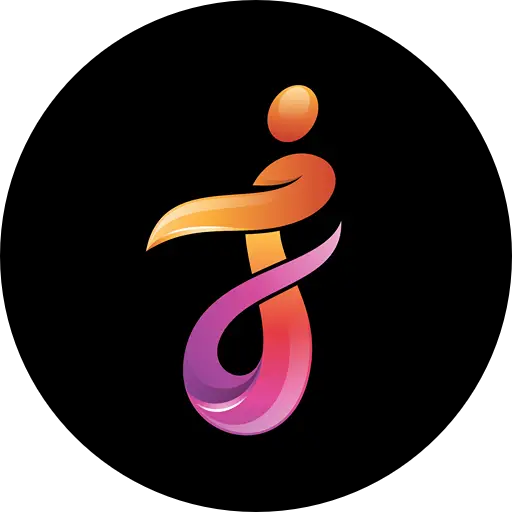Table of Contents
Introduction to Industry-Specific Perfect Resumes
In today’s competitive job market, crafting a resume tailored to a specific industry can significantly enhance your chances of standing out to potential employers. Unlike a generic resume, an industry-specific resume highlights the relevant skills, experiences, and qualifications that align closely with the demands and expectations of the target field. This approach is particularly crucial in the software industry, where the requirements often differ markedly from other sectors such as marketing or healthcare.
The software industry is characterized by rapid technological advancements and a strong emphasis on technical proficiency. Employers in this field typically look for candidates who possess a deep understanding of programming languages, software development methodologies, and problem-solving abilities. Additionally, they value hands-on experience with particular tools and frameworks, as well as familiarity with industry standards and best practices. Therefore, a resume that effectively showcases these qualities is more likely to catch the attention of hiring managers.
In contrast, industries like marketing or healthcare place a higher emphasis on different skill sets and experiences. Marketing professionals, for instance, benefit from highlighting their creativity, communication skills, and experience with market analysis and campaign management. Healthcare professionals, on the other hand, need to focus on their clinical expertise, patient care experience, and knowledge of medical regulations. These differences underscore the importance of tailoring your resume to meet the specific needs of the software industry.
This guide will walk you through the essential steps to create a compelling software industry resume. We will cover how to effectively showcase your technical skills, relevant experience, and educational background. Additionally, we will provide tips on how to format your resume for clarity and impact, ensuring that it meets the high standards of the software industry. By following these steps, you can craft a resume that not only highlights your strengths but also aligns perfectly with the expectations of software employers.
Understanding the Software Industry Landscape
The software industry is a dynamic and constantly evolving sector, characterized by rapid technological advancements and a high demand for skilled professionals. Staying abreast of current trends is crucial for job seekers who aim to craft a resume that stands out. The landscape is increasingly shaped by innovations in artificial intelligence (AI), cybersecurity, cloud computing, and machine learning. These advancements not only influence the types of roles available but also determine the specific skills that are in high demand.
Common roles within the software industry include software developers, data scientists, cybersecurity analysts, and IT project managers. Software developers, for instance, are tasked with creating and maintaining applications, requiring proficiency in programming languages such as Python, Java, and C++. Data scientists, on the other hand, focus on extracting insights from data, employing skills in statistics, machine learning, and data visualization tools.
Cybersecurity has emerged as a critical field within the industry, with roles such as cybersecurity analysts and ethical hackers becoming increasingly vital. These professionals are responsible for protecting systems and data from cyber threats, necessitating expertise in network security, encryption, and risk management. Additionally, the rise of AI and machine learning has led to a surge in demand for specialists who can develop intelligent systems and algorithms.
Understanding the job market is essential for crafting a resume that resonates with potential employers. This involves recognizing the key sectors within the software industry and tailoring your resume to highlight relevant experiences and skills. For example, if you are applying for a position in AI, emphasizing your knowledge in neural networks and deep learning frameworks can be advantageous. Similarly, showcasing your familiarity with security protocols and threat assessment methods would be beneficial for roles in cybersecurity.
In essence, a well-crafted resume should reflect an awareness of the software industry’s landscape, demonstrating your capability to meet the specific demands of the job market. By aligning your skills and experiences with the current trends and roles in demand, you enhance your chances of securing a position in this competitive field.
Researching Potential Employers and Job Listings
Crafting a resume that resonates with hiring managers in the software industry necessitates thorough research into potential employers and job listings. Understanding the specific requirements and culture of a company allows you to tailor your resume effectively, making it stand out in a competitive field. Begin by identifying companies that align with your career goals and values.
Company websites are a primary resource for gathering information. Here, you can explore their mission statement, recent projects, and organizational values. This insight will enable you to align your skills and experiences with what the company prioritizes. Additionally, employee testimonials and company blogs can provide a glimpse into the work environment and culture.
LinkedIn is another invaluable tool. By following companies and joining relevant groups, you gain access to updates, job postings, and professional networks. Viewing the profiles of current employees can also reveal the kinds of skills and experiences that are valued, offering a blueprint for crafting your own resume.
Glassdoor offers an insider perspective with employee reviews and ratings, giving you a clearer picture of the company culture and management style. This platform also lists common interview questions, which can help you prepare for potential queries about your resume.
Industry-specific job boards are essential for pinpointing job listings that match your qualifications. Websites like Job Searchers, LinkedIn, Stack Overflow Jobs, GitHub Jobs, and AngelList provide specialized listings that cater to the software industry. Analyzing multiple job descriptions will highlight recurring required skills and experiences, helping you to fine-tune your resume to meet these expectations.
By leveraging these resources, you can gather comprehensive information about potential employers and job listings. This research not only enhances the precision of your resume but also demonstrates your genuine interest and proactive approach, setting a strong foundation for a successful job application in the software industry.
Choosing the Right Resume Format
When crafting a resume for the software industry, selecting the appropriate format is crucial to effectively showcase your skills and experience. There are three primary resume formats to consider: chronological, functional, and hybrid. Each format has distinct advantages and can be suited to different career stages and job targets.
The chronological resume format is the most traditional and widely used. It lists work experience in reverse chronological order, starting with the most recent position. This format is ideal for software professionals with a steady work history and progressive career growth. It allows employers to see a clear timeline of your career progression and how each role has built upon the previous one. If you have a solid track record in software development or engineering, a chronological resume can effectively highlight your steady progression and accomplishments.
On the other hand, the functional resume format emphasizes skills and qualifications over work history. This format is beneficial for those who may have gaps in their employment or are changing careers within the software industry. It allows you to focus on specific skills relevant to the job you’re targeting, such as programming languages, software development methodologies, or project management. However, because it lacks a detailed work history, some employers may question the context of your experience.
The hybrid resume format combines elements of both chronological and functional formats. It starts with a skills section where you can highlight your technical abilities and key achievements, followed by a chronological listing of your work experience. This format is particularly effective for software professionals who want to showcase a strong skill set while also providing a clear employment history. The hybrid format is versatile and can be tailored to various career stages and job targets, making it a popular choice in the software industry.
Ultimately, choosing the right resume format depends on your unique career trajectory and the specific job you are targeting. A chronological format suits those with a stable career path, while a functional format benefits those with diverse experiences or career changes. The hybrid format, however, often offers the best of both worlds, allowing you to present a comprehensive and compelling narrative of your professional journey in the software industry.
Highlighting Relevant Skills and Experiences
When crafting a resume for the software industry, it is essential to highlight the skills and experiences that align with the job role you are targeting. Start by identifying the technical skills that are crucial for the position. These may include programming languages, software development methodologies, and tools such as version control systems. Make sure to list these skills prominently, using industry-specific keywords to ensure your resume passes through applicant tracking systems (ATS).
In addition to technical skills, soft skills such as problem-solving, teamwork, and communication are highly valued in the software industry. Demonstrating your ability to work effectively in a team, manage projects, and communicate complex ideas clearly can set you apart from other candidates. Include specific examples of how you have utilized these soft skills in past roles to achieve positive outcomes.
Certifications can also play a pivotal role in showcasing your expertise. Whether it’s a widely-recognized certification like AWS Certified Solutions Architect or a more specialized credential, these certifications can validate your skills and knowledge in a concrete way. Be sure to list any relevant certifications along with the dates you obtained them.
Quantifying your achievements is another strategy to make your resume stand out. Instead of simply stating your responsibilities, provide measurable outcomes. For instance, instead of saying “developed software applications,” consider saying “developed software applications that increased operational efficiency by 20%.” This approach provides a clearer picture of your contributions and impact.
Lastly, tailoring your resume to the specific job description is critical. Analyze the job listing for keywords and phrases that are emphasized by the employer. Incorporate these keywords naturally into your resume to demonstrate that your skills and experiences align with the job requirements. This not only helps with ATS but also shows the hiring manager that you are a well-suited candidate for the position.
Crafting a Compelling Professional Summary
The professional summary is a crucial element in your resume, especially within the competitive software industry. It serves as an introduction to your qualifications and career aspirations, offering a snapshot that captures the recruiter’s attention within seconds. A well-crafted summary should be concise, impactful, and tailored to the specific role you are applying for.
When writing your professional summary, begin by succinctly stating your current role, years of experience, and primary skills. Highlight key achievements and qualifications that align with the job description. This section should encapsulate your career trajectory and the value you bring to potential employers. Avoid generic statements and instead focus on specific accomplishments and proficiencies that set you apart.
For instance, if you are applying for a Software Developer position, your summary might read:
“Experienced Software Developer with over 5 years of expertise in developing scalable web applications using Java and Python. Proven track record of leading cross-functional teams to deliver high-quality software solutions. Adept at driving continuous improvement through agile methodologies and code optimization.”
Alternatively, if you are targeting a role as a Data Scientist, consider the following example:
“Results-driven Data Scientist with 4 years of experience in predictive modeling, data mining, and machine learning. Skilled in leveraging big data analytics to drive business insights and strategy. Proficient in Python, R, and SQL, with a strong background in statistical analysis and data visualization.”
For a Project Manager position, a suitable summary could be:
“Seasoned Project Manager with 7 years of experience in managing software development projects from inception to completion. Expertise in Agile and Scrum methodologies, with a strong focus on delivering projects on time and within budget. Proven ability to lead cross-functional teams and drive project success.”
By tailoring your professional summary to the specific role, you not only demonstrate your qualifications but also showcase your understanding of the job requirements. This targeted approach increases your chances of making a strong impression on recruiters, setting the stage for a successful application.“`html
Detailing Work Experience and Projects
When crafting your resume for the software industry, detailing work experience and projects is crucial. It is essential to present your professional history in a clear, concise, and compelling manner. Begin by listing your previous roles in reverse chronological order, ensuring each entry includes your job title, the company name, and the dates of employment.
Use strong action verbs to describe your responsibilities and achievements. Words like “developed,” “implemented,” “engineered,” and “optimized” can effectively convey your proactive contributions. Quantifiable achievements are particularly impactful. Instead of stating that you “worked on a team project,” specify that you “led a team of five to develop a software solution that increased operational efficiency by 20%.” These details provide concrete evidence of your capabilities and the value you bring to an organization.
Describing complex technical projects can be challenging. Aim to communicate your technical expertise in a manner that is both impressive and understandable. Break down intricate projects into manageable components, focusing on the problem, the solution you devised, and the outcome. For instance, “Designed and implemented a machine learning algorithm to predict customer churn, resulting in a 15% reduction in customer attrition.” This approach highlights your problem-solving skills and the tangible results of your work.
Moreover, showcasing teamwork and collaboration is vital in the software industry, where projects often require coordinated efforts. Highlight instances where you contributed to team dynamics, such as “Collaborated with cross-functional teams to integrate new features into the product, enhancing user experience and driving a 10% increase in user satisfaction.” This not only underscores your technical skills but also your ability to work effectively within a team.
By detailing your work experience and projects with precision and clarity, you can provide potential employers with a compelling snapshot of your professional journey. This, in turn, significantly enhances your chances of securing that coveted role in the software industry.
Final Touches and Tailoring for Each Application
As you near the completion of your resume for the software industry, the final touches become crucial in ensuring your document stands out. The first step in this phase is thorough proofreading. Errors in spelling, grammar, or syntax can undermine your professionalism. It is advisable to read your resume multiple times and, if possible, have it reviewed by someone else to catch mistakes you might have overlooked.
Consistency in formatting is another key aspect. Your resume should have a uniform appearance, with consistent font styles, sizes, and spacing. Ensure that headings, bullet points, and other elements are aligned and visually appealing. A cluttered or inconsistent resume can confuse hiring managers and detract from the content’s clarity.
Tailoring your resume for each specific job application is essential in the software industry. Different roles may require varied skills and experiences. Customize your resume to highlight the most relevant qualifications for each position. For example, if applying for a role focused on front-end development, emphasize your experience with HTML, CSS, and JavaScript. Conversely, for a back-end role, focus on your knowledge of server-side languages and database management.
Moreover, it is beneficial to incorporate keywords from the job description into your resume. Many companies use Applicant Tracking Systems (ATS) to filter resumes. Using relevant keywords can increase the chances of your resume being seen by a human recruiter.
Seeking feedback from peers, mentors, or industry professionals can provide valuable insights. They can offer suggestions for improvement and identify any areas that may need clarification. Additionally, consider using professional resume review services. These services can provide expert advice on optimizing your resume for the software industry, ensuring it meets current standards and practices.
In conclusion, the final touches and tailoring of your resume are pivotal steps in the application process. By focusing on proofreading, formatting consistency, and customization for each job application, you can enhance the overall effectiveness of your resume, making it more likely to capture the attention of potential employers in the software industry.






